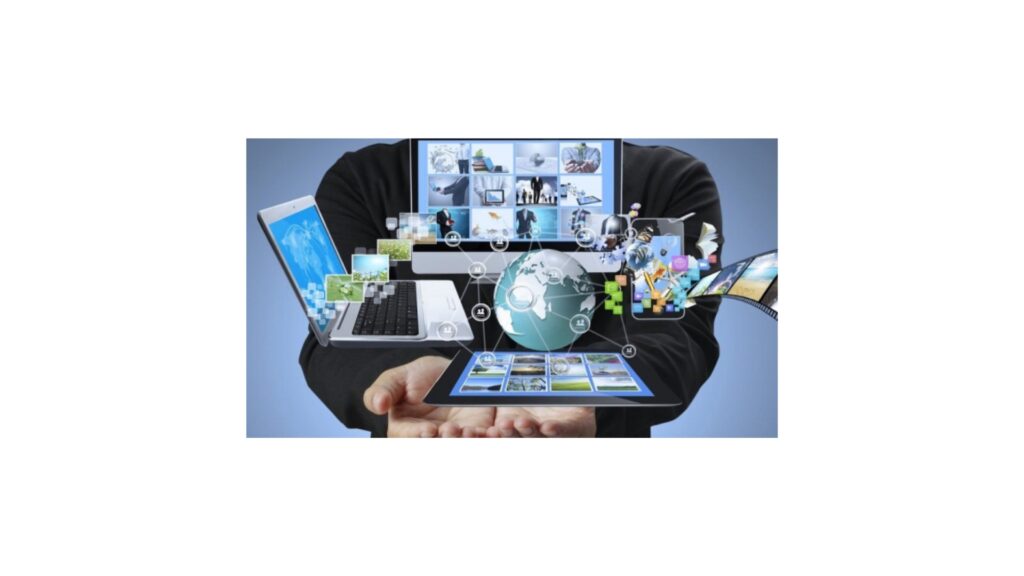tech
Revolutionizing Earth Science for Individuals
Revolutionizing Earth Science for Individuals
In recent years, the field of geology has experienced significant advancements thanks to technological innovations. Among these innovations, personal geological sensor devices have emerged as a game-changer, bringing the power of geological analysis and monitoring directly into the hands of individuals. These sophisticated tools are designed to measure and analyze various geological parameters, offering valuable insights into the Earth’s structure and processes. This article explores the concept of personal geological sensor devices, their applications, benefits, and the impact they are having on both amateur enthusiasts and professional geologists.
LINK DOMAIN javanet247.com
1.Revolutionizing Earth What Are Personal Geological Sensor Devices?
Personal geological sensor devices are portable instruments designed to monitor and measure geological phenomena. Unlike traditional, large-scale geological equipment that is typically used in research laboratories or field studies, these devices are compact, user-friendly, and designed for individual use. They leverage advanced sensor technology and data analytics to provide real-time information about various geological factors, such as soil composition, seismic activity, magnetic fields, and more.
These devices often come equipped with a range of sensors, including accelerometers, magnetometers, gyroscopes, and spectrometers. They can be connected to smartphones or tablets via Bluetooth or other wireless technologies, allowing users to view and analyze data on-the-go. Personal geological sensor devices are becoming increasingly popular among amateur geologists, environmental enthusiasts, and professionals alike due to their versatility and accessibility.
Key Features and Capabilities
Soil and Rock Analysis: Many personal geological sensor devices are equipped with sensors that can analyze soil and rock samples. These sensors can measure parameters such as mineral content, moisture levels, and pH, providing valuable information for agricultural, construction, and environmental applications. For example, farmers can use these devices to assess soil health and optimize crop production, while construction professionals can analyze rock samples to determine their suitability for building projects.
Seismic Monitoring: Seismic sensors in personal geological devices can detect ground vibrations and earthquakes. These sensors measure the intensity, frequency, and duration of seismic waves, providing real-time data on seismic activity. This information can be used to monitor earthquake-prone areas, assess the stability of structures, and even predict potential seismic events. For instance, earthquake enthusiasts and researchers can use these devices to track seismic activity in their local regions and contribute to earthquake studies.
2.Revolutionizing Earth Magnetic Field Measurement:
Magnetic sensors in personal geological devices can measure the Earth’s magnetic field and detect variations caused by geological formations or magnetic anomalies. This capability is useful for studying geological features such as magnetic ore deposits or understanding the Earth’s magnetic field dynamics. Geologists and explorers can use this data to map geological structures and identify areas of interest for further investigation.
GPS and Location Tracking: Many personal geological sensor devices are equipped with GPS technology, allowing users to record their location and track their movements. This feature is particularly useful for fieldwork, as it enables users to map geological features, document findings, and navigate through remote areas. The integration of GPS with geological sensors enhances the accuracy and efficiency of data collection and analysis.
Data Visualization and Analysis: Personal geological sensor devices often come with accompanying mobile apps or software that provide data visualization and analysis tools. Users can view real-time graphs, charts, and maps of their measurements, making it easier to interpret and analyze the data. These tools also allow users to store and compare historical data, identify trends, and share their findings with others.
Applications and Benefits
Amateur Geology and Exploration: Personal geological sensor devices are a valuable tool for amateur geologists and enthusiasts who want to explore and understand the Earth’s processes. These devices allow individuals to conduct their own geological surveys, analyze rock and soil samples, and monitor seismic activity in their local areas. This hands-on approach to geology enhances learning and encourages a deeper appreciation for the natural world.
Environmental Monitoring: Environmentalists and conservationists can use personal geological sensor devices to monitor environmental conditions and assess the impact of human activities on the Earth. For example, these devices can be used to measure soil contamination, track changes in vegetation, and monitor the effects of climate change. By providing real-time data, personal geological sensors help inform decision-making and support sustainable practices.

3.Revolutionizing Earth Education and Research:
Educational institutions and researchers can benefit from personal geological sensor devices in their teaching and research activities. These devices provide students with practical experience in geological fieldwork, allowing them to collect and analyze data firsthand. Researchers can use these tools to conduct field studies, gather data for research projects, and collaborate with other scientists.
Safety and Preparedness: Personal geological sensor devices play a crucial role in safety and preparedness for natural disasters. For example, devices with seismic sensors can provide early warnings for earthquakes, allowing individuals and communities to take protective measures. Additionally, these devices can be used to assess the stability of slopes and structures, helping to prevent landslides and other geological hazards.
Outdoor Activities: Outdoor enthusiasts, such as hikers, climbers, and geocachers, can use personal geological sensor devices to enhance their adventures. By measuring geological parameters and mapping their routes, these individuals can gain a better understanding of their surroundings and make informed decisions about their activities. For example, climbers can use these devices to assess rock stability and identify potential hazards.
Future Trends and Developments
The field of personal geological sensor devices is rapidly evolving, with ongoing advancements in technology and data analytics. Future developments may include:
Integration with Artificial Intelligence: The integration of artificial intelligence (AI) with personal geological sensors could enhance data analysis and interpretation. AI algorithms could analyze complex data sets, identify patterns, and provide predictive insights, further improving the accuracy and usefulness of geological information.
3.Revolutionizing Earth Enhanced Sensor Capabilities:
Advances in sensor technology could lead to the development of even more sophisticated personal geological devices. For example, sensors with higher resolution and sensitivity could provide more detailed and precise measurements of geological parameters.
Increased Connectivity and Collaboration: The future may see greater connectivity and collaboration among users of personal geological sensors. Cloud-based platforms and data-sharing networks could enable users to collaborate on research projects, share findings, and contribute to larger geological databases.
Improved User Interfaces: Advances in user interfaces and mobile applications could make personal geological sensor devices even more user-friendly and accessible. Enhanced visualization tools, interactive features, and intuitive designs could improve the overall user experience.

Conclusion
Personal geological sensor devices represent a significant advancement in the field of geology, offering individuals the tools to explore, monitor, and analyze the Earth’s processes in unprecedented ways. These devices provide valuable insights for amateur geologists, environmentalists, educators, and outdoor enthusiasts, enhancing our understanding of the natural world and supporting informed decision-making. As technology continues to advance, the capabilities and applications of personal geological sensors are likely to expand, further revolutionizing the way we interact with and study our planet.


